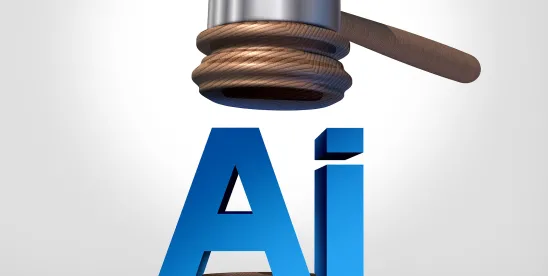We recently posted about the Jobiak case which raises the interesting question of whether scraping an AI-generated database of job listings constitutes copyright infringement (among other claims). Plaintiff has submitted its opposition, in which it raises the substantive arguments to the copyright claim set forth below.
As a reminder, the motion to dismiss alleges that Plaintiff’s copyright infringement claim fails whether it asserts copyright over its database or individual listings in the database. It asserts that Plaintiff owns no valid copyright over the asserted materials because its AI-generated database is not copyright eligible and the individual listings are owned by third parties and not covered by Plaintiff’s copyright registration. It further argues that Defendant’s listings predate Plaintiff’s in each instance. It also argues that under 17 U.S.C. § 412(2), Plaintiff’s claims for statutory damages and attorneys’ fees fail because Jobiak did not register its copyright before commencement of the alleged infringement or within 3 months of the first publication.
Plaintiff’s opposition to the motion to dismiss argues that its copyright registration covers a compilation of database information including job descriptions, categories, job listings, and layout designs. It asserts that the automated database consists of wholly original material, which is copyrightable subject matter pursuant to 17 U.S.C. § 101 et seq. It further argues that an automated database has been found to be copyrightable, based on the originality of its selection, coordination, or arrangement. Under 17 U.S.C. § 101, if these elements are arranged in such a way that the resulting work as a whole constitutes an original work of authorship, the database can be protected by copyright.
With respect to whether copying individual listings constitutes infringement, Plaintiff argues that copying any part of a copyrighted database, even if it comprises individual listings, still constitutes copyright infringement. Plaintiff, for alleged support, argues in a prior case, the court rejected an argument that copying ‘24 lines of code which represented less than 1/100th of one percent of the overall codebase’ was de minimis copying. It argued that in the context of copyright infringement, this Circuit has established that the key factor is not merely the quantity of the copied material, but whether the copied portion is material and substantial, which is a question of fact.
It is not clear that this case is directly on point here. This case does not appear to be about how much was copied, but rather what was copied was protected by copyright. Plaintiff does not directly address defendant’s assertion that individual listings are owned by third parties and thus not protectable. It is not clear whether Plaintiff is arguing that the format or arrangement of the individual listings is somehow unique. While a copyright may cover a compilation of factual works, the copyright protection in a factual compilation is thin. Copyright protection extends to the compilation of facts if the compilation represents original authorship.
According to the Copyright Office report on database protection, databases may be copyrightable as a form of compilation, as a work formed by the collection and assembling of preexisting materials or of data that are selected, coordinated, or arranged in such a way that the resulting work as a whole constitutes an original work of authorship. It is not clear what Plaintiff is relying on for protection of individual listings.
The case also includes claims under the Computer Fraud and Abuse Act (CFAA), the California Comprehensive Data Access and Fraud Act (CDAFA) and the Digital Millennium Copyright Act (DMCA). As to these claims, defendant argues they all should fail because Plaintiff’s website is generally accessible to the public. Plaintiff contests that the proprietary, copyrighted database at issue, is not openly available to the public.
While some of the issues here will be fact specific, this case should provide some guidance on the protectability of databases that are AI generated.



 />i
/>i

